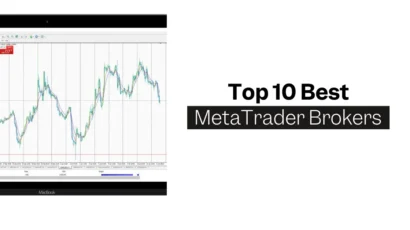Disclosure: Privacy Australia is community-supported. We may earn a commission when you buy a VPN through one of our links. Learn more.
Aussie Farmland Saw Record Purchases in 2021
According to an Australian Country News article, nearly half of all farmland was sold in 2021 (largely to city dwellers) countrywide.
Yes, you’re reading that right: between 2020 and 2021, Australia’s farmland increased by 20% and sold for over $14 billion.
According to the Rural Bank Australian Farmland Values report, an average hectare of land in Australia sold for $6,480 — with the highest price reported in Tasmania at $13,468/hectare.
The 2021 Australian Farmland Values report by Rural Bank shows that commodity prices have not kept up with land prices since 2017, despite the fact that production costs, including land, have risen for decades.
Which is why the likes of Bill Gates have been buying farmland up like crazy — they saw this coming. Actually, Gates has the most farmland in the U.S.
Why?
Farming is hard but fundamentally very productive, which is why it’s so valuable — unlike stocks and bonds or cash, it grows viable products that can be directly consumed for sustenance. In short, you can live off the land.
Nonetheless, farming is a difficult task. To grow crops, you have to invest money and time in order to produce enough food for the season. The costs can become even higher once you factor in the loss of production due to soil erosion and other factors.
What Is Farmland?
Simply put, farmland is the land where crops are grown for food, fuel, and other products. There are a few different definitions of “land” when it comes to farming, so it’s important to clarify exactly what we mean here. Most people think of all the land that humans use for farming. That’s different from the land that’s used for farming, which is what we’re referring to here.
Why Is Farmland Important?
There are many advantages to growing your own food. First, you get to choose what you grow and the quantities you plant, which can be very helpful when planning a diet. You are also less likely to be sick if you eat home-grown food because you’re not eating produce that has been sitting in a grocery store or truck.
You also save money if you grow your own food. You can grow your own vegetables, fruits, and grains in your backyard. In many areas, you can even grow food using hydroponics. You can sell the excess for profit and use the produce for food or other purposes.
The Uses of Farmland
- Cropland 🌱 – This is the most common use of farmland. The term refers to land that has been cultivated for the purpose of growing crops. Cropland is the most commonly used form of farmland.
- Pasture 🌱 – This is land that has been used to graze livestock, usually cattle.
- Rangeland 🌱 – This is land that has been used to raise sheep and other animals that can survive on grass.
- Woodland 🌱 – This is land that has been used to plant trees, either for commercial logging or for their forest products, such as timber or paper.
The Benefits of Farmland
- Increased Food Security 🌞 – Growing your own food is one of the best ways to increase your food security. Even if you live in a region where food is plentiful, you can’t count on it staying that way forever. By growing your own food, you can ensure that you have enough to eat.
- Reduced Food Costs 🌞 – If you grow your own food instead of buying it at the store, you can save a lot of money. In addition to the large or tiny cost savings, you can also earn extra income from selling excess produce.
- Self Reliance 🌞 – Growing your own food is one of the best ways to become more self-reliant. You can’t rely on the grocery store for everything, and there are many things that you need that you can’t get from a store. With a little creativity, you can produce many of these things at home.
- Environmental Responsibility 🌞 – Many people think that farming is a destructive activity. However, a lot of modern farming is done using machinery. By growing your own food, you can reduce your reliance on fossil fuels and help to protect the environment. Waste Reduction – When you grow your own food, you’re forced to be more conscious of your waste. Obviously, you can’t eat something that you can’t use, and you have to make choices about what to grow. This means that you have to be mindful about how much you use.
Takeaway
The positive effects of home value growth appear to outweigh the negative implications for the economy and society.
In addition, agricultural land values are also on the rise, and this is keeping new entrants away from the industry. To some, this suggests a strong sense of survival, rather than a sign of underlying problems.
So overall, we’re looking at a race for self-sufficiency as supply chains and the age of the mega superstore are threatened by war, debt, and more.





